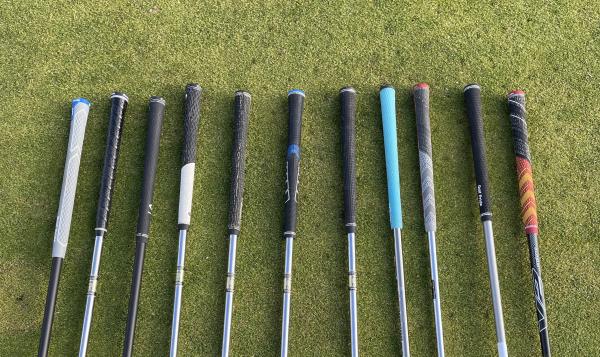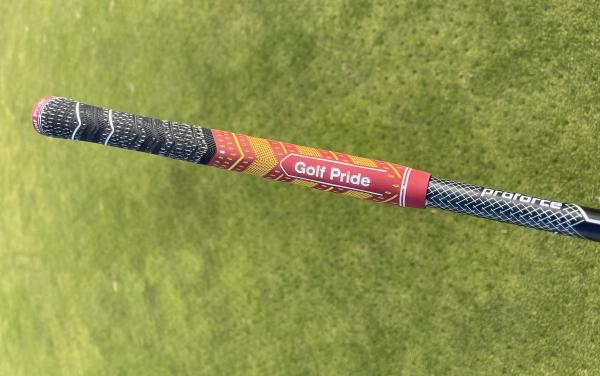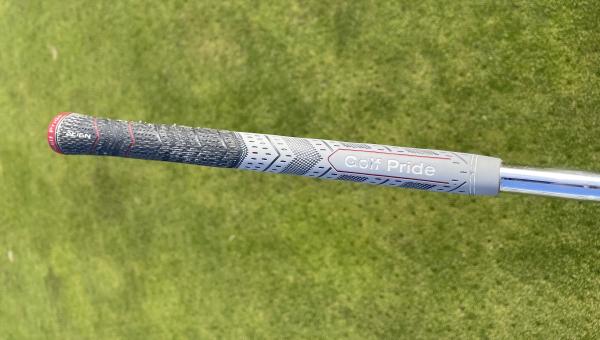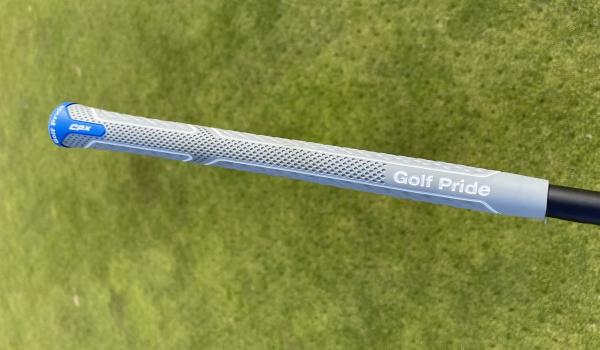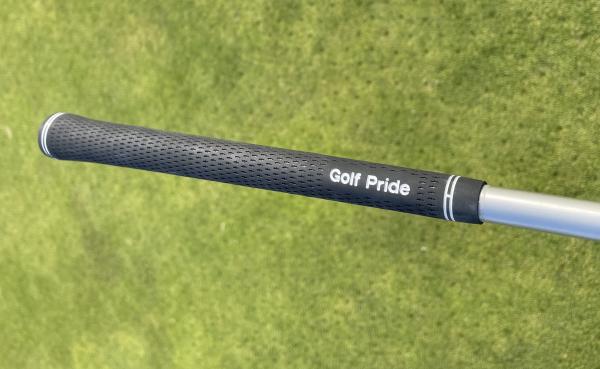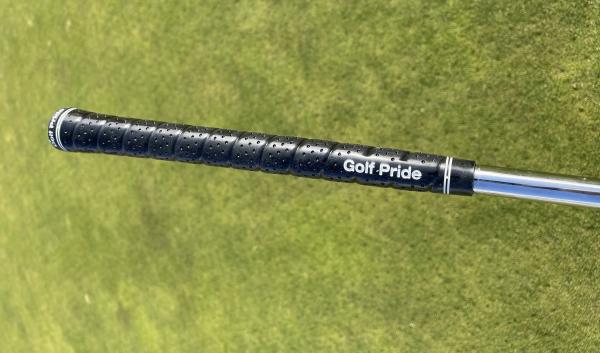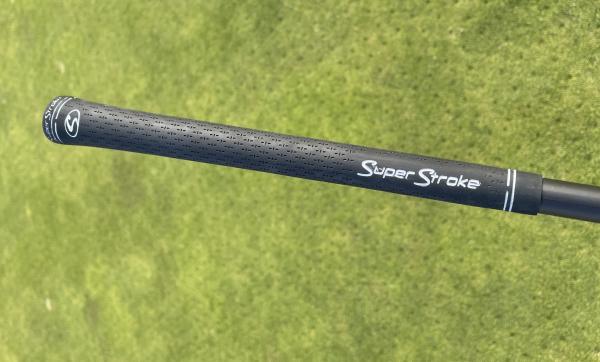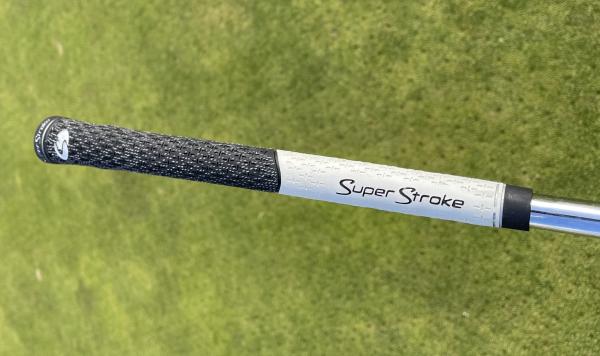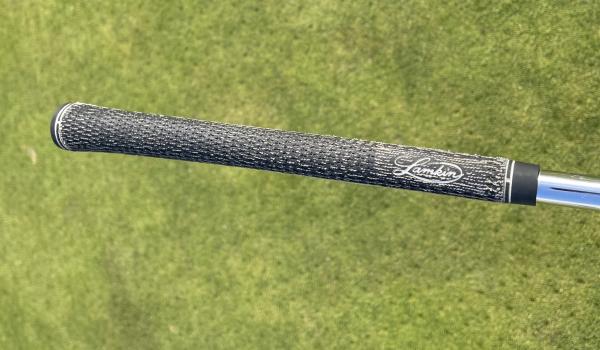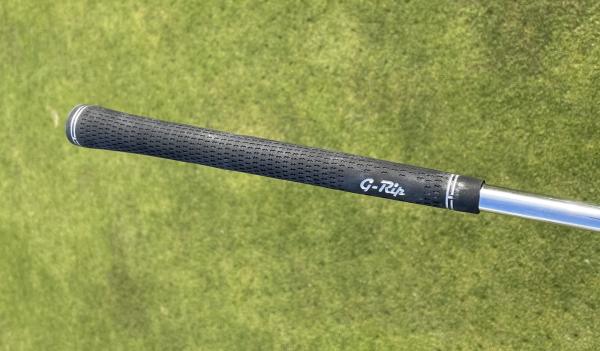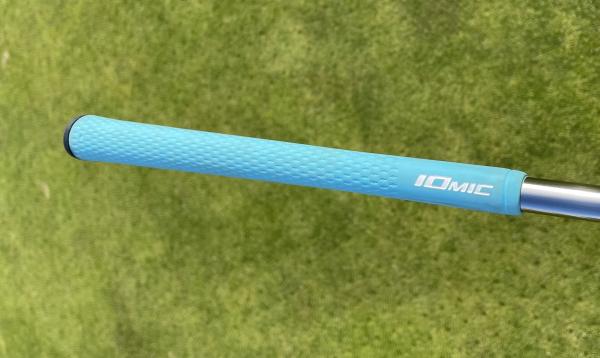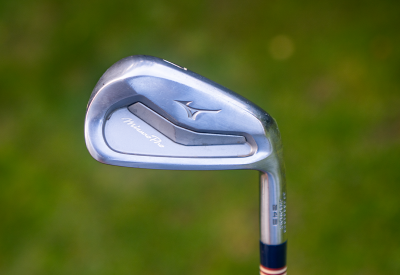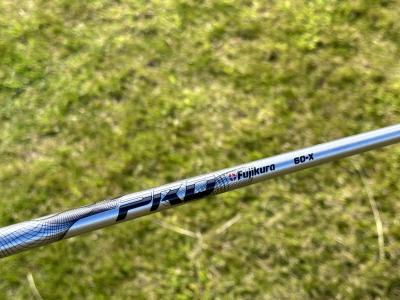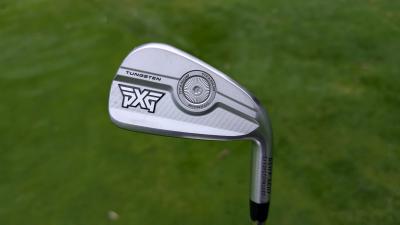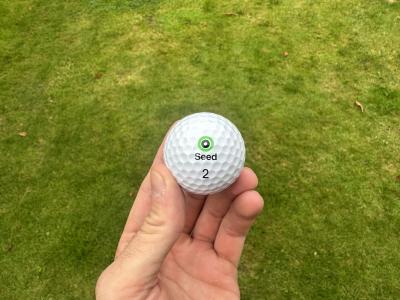Best Golf Grips 2023: Buyer's Guide and things you need to know
Check out our review of some of the game’s best golf grips, as well as handy tips about how, and how often you should change yours!
Golf grips can be a part of our equipment that is often overlooked. However, the humble golf grip is your connection to the rest of your club, and provides sensory feedback on every single shot you make.
It is no surprise then that club manufacturers look to partner with some of the industry’s leading makers of grips, including Golf Pride, SuperStroke, Lamkin, and more, to ensure the hard work of their design team isn’t let down by a grip that cheapens the overall package.
Many of the best golf drivers and irons on the market today already come fitted with the best golf grips in the game, all of which feature in this guide.
WATCH: HOW TO GRIP A GOLF CLUB
But what happens when your grips start to wear out? And when will that be exactly?
Fear not, as we have got you covered in our ultimate golf grip guide.
Check out our full review of the best golf grips below, and scroll further down as we answer the most important questions.
Best Golf Grips 2023
Golf Pride – Multi-Compound
Pros: Good level of grip, choice of colourways
Cons: A touch firmer than most
Price: Generally under £10 each
The Multi-Compound or MCC as also known has been a staple of the Golf Pride lineup for more than a decade, and has been played by some of the best golfers on the PGA Tour including Rory McIlroy.
Indeed, it’s still the most popular hybrid grip (mix of corded and rubber) on the market.
A fantastic option for most, and also available in a myriad of sizes – including the Plus4 which adds additional width under the bottom hand.
It’s a grip that’ll be familiar to many, and as such, you’ll likely have your own thoughts already.
We love the traction you get from these, as well as the wide range of colours to choose from.
Our only slight gripe is the firmer feel which is something that is entirely personal preference, as many will appreciate the additional feedback this gives.
But on the whole, this is definitely one of our preferred choices of golf grip in 2023.
Golf Pride – Multi-Compound Align
Pros: All the same benefits as standard version, but with additional alignment aid
Cons: Fitting needs to be spot on, also can feel unusual if opening / closing club face when needed
Price: Generally around £10 each
As we noted above, the Align version of the MCC is very similar to the standard version with the addition of a red alignment aid that runs down the back of the grip.
This is a fantastic way of ensuring that your grip is the same each time you put your hands on the club.
The alignment aid is slightly raised, giving you a reminder within your fingers of where they should be.
There’s only two slight downsides to this, one of which can be mitigated by taking care when fitting!
However, if the grip is slightly mis-aligned when fitted, this will be where you’ll find your hands each time.
Also, the reminder can feel a bit strange on shorter clubs if you’re opening or closing the face – on a bunker shot, for example.
All in though, it’s an excellent choice, and something you’ll see in the hands of a lot of Tour pros this season.
Golf Pride – CPX
Pros: Built in alignment, and super soft, comfortable feel
Cons: At the pricier end. Only available in light grey which could get dirty (particular in winter!)
Price: Generally over £10 each
A superb grip.
It has a softer feel that we love, and a mix of textures that feel super comfortable in the hand.
The design also builds in a level of alignment with the flatter top surface contrasting with the EXO diamond-quilted pattern on the side.
We would have a slight concern that the light grey colour can discolour – particularly with a dirty glove!
They are also amongst the more expensive in the test, but we feel as though you will certainly see value here if you choose to refit your set with the CPX.
WATCH OUR FULL GOLF PRIDE CPX GRIP REVIEW HERE
Golf Pride – Tour Velvet
Pros: Essentially, the industry standard grip
Cons: Lacking a little technology, only available in black
Price: Generally under £10 each
The golf grips of choice for Tiger Woods.
Need we say any more?!
It’s the grip that others will benchmark their standard version against, with its simplicity being a large part of the attraction for many.
The grip feels great, and over time, Golf Pride have worked to make it longer lasting than previous models.
The Tour Velvet can get a little shiny if you don’t give it a clean every once in a while, but realistically, will last a good couple of years, even for avid golfers.
And what’s more, when you do come to change them, you’ll comfortably be able to regrip your full set for under £100.
Golf Pride have also added Align and Plus4 version for those that want a little extra tech too.
Golf Pride – Tour Wrap
Pros: Pricepoint, choice of three colours, very good in dry climates
Cons: Struggle in the wet
Price: Generally under £10 each
The Golf Pride Tour Wrap has fallen slightly out of favour over recent years, as the brand develop other technologies.
However, many still gravitate towards it’s unique wrapped-design, particularly with it being available in several colours.
The grip has a firmer feel than most, and whilst feels extremely tacky when new, is prone to going shiny slightly sooner than most.
The firmness of the rubber and lack of contrast in the material can also make this a little slippy in the wet.
All that said, we’ve still got a soft spot for the Tour Wrap, particularly when they can be picked up for around a fiver each!
SuperStroke – S-Tech Club Grip
Pros: Pricepoint, good feel, choice of colours
Cons: Lack of technology
Price: Generally under £10 each
Despite being more well-known for their putter grips, SuperStroke have had a successful launch into the full swing too; thanks in part to Jordan Spieth and Sergio Garcia being early adapters of the products.
Both of these have played the S-Tech grips, with Sergio using the fetching blue option throughout his set in recent years.
Although the company has a slightly different ‘Cross Traction’ design, it’s remarkably similar in feel and design to the market leader which we definitely think is a good thing.
The grips can also be found remarkably cheaply too, appealing to those who might want to change their set more regularly.
SuperStroke – Tx1 Club Grip
Pros: Good traction, choice of colours, softer bottom hand
Cons: Bottom portion always white and can discolour
Price: Generally around £10 each
We really like the Tx1 grip from SuperStroke, which is their version of a half-cord offering, and available in multiple colours.
One of our only gripes is that the bottom half of the grip is always white, no matter the top colour (green, black, blue, grey).
This can lead to the grip getting a little dirty, particularly with this being a golfers non-gloved hand!
That said, we really are nit-picking if our only issue is with the colour, which is testament to the product.
We particularly like the softer feel of the bottom hand compared to other half-cord options – but again, this is personal preference.
Lamkin – Sonar+
Pros: Great feel, unique design
Cons: Can be a little slippy in the wet
Price: Generally over £10 each
We’ll be honest, this is one of the grips that we hadn’t used before the test and were pleasantly surprised.
The Sonar+ has an extremely pleasing feel, with a design that aids alignment with a myriad of technology packed in.
As a result, it is slightly more expensive than many others on the test, so could put some people off choosing to grip their full set.
The grip features Lamkin’s “push pull technology” and “torsion control” which both do a good job of providing sensory feedback and keeping the hands steady in most conditions, but the overall compound does get a little slippier than some others on test when soaked through – a (very) small watch out for those playing regularly in the rain or humidity.
Lamkin – Full Cord
Pros: Classic full cord design, great traction
Cons: Can be abrasive on the hands
Price: Generally around £10 each
We like a cord grip, Tiger Woods likes a cord grip, everybody likes a cord grip.
That’s until you’ve got to play a few seasons and practice sessions with them tearing up your hands!
In reality, these grips aren’t as penal as they can be made out to be, but those looking for a soft and sensory experience should probably give these a swerve.
However, elite players who need to know that they can rely on their grips in all conditions should give these serious consideration, if they haven’t already.
Other than the cord itself, there’s not a huge amount of tech in these grips, and so we’ve refrained from testing one from each manufacturer – but needless to say, most will do a version of the standard full cord.
G-Rip – A-Tac
Pros: Pricepoint, Feel
Cons: Brand recognition
Price: Generally under £10 each
We were really impressed by the G-Rip product which again somewhat resembles a market leading soft grip – albeit the G-Rip is available in a couple of colour options!
The best thing about them is undoubtedly the price, with these the cheapest on our test.
Despite this, you wouldn’t know from the performance, with these a very solid option for golfers on a budget.
The only thing we could perhaps mark these down on is the brand recognition, and the built up assurance of long-term quality that you have from some other brands, but we’ve no complaints about the products at all!
Iomic – Sticky 2.3
Pros: Loads of different colours, very tacky
Cons: Can wear quicker than some, bright colours can discolour
Price: Generally over £10 each
Openly, these are the grips we currently use on our set, thanks mainly to the super soft feel (and the availability of bright colours).
We also like the look of the more rectangular design, and did we mention the colours?!
The two bigger downsides of these grips can be that the softness of the product can wear a touch quicker than most, and replacing them can be costly, with the grips difficult to find for under £10 each.
However, it probably wouldn’t put us off regripping another set with these, as they perform well in all conditions, with the tacki-ness being retained for a long period of time after fitting.
Oh, and they come in some great colours too!
How do I know what golf grip size is right for me?
Much of this will be down to personal preference, however, industry leaders Golf Pride suggest that the majority of golfers will fit into one of two sizes, standard and midsize.
This will cover more than 75% of all of those playing the sport.
Outside of these, golfers who wear a small glove may want to check out undersized or junior grips, and those wearing a men’s XL or 2XL glove might want to consider a jumbo grip.
How often should I change my golf grips?
This will be a largely personal choice based on a myriad of factor.
As a rough rule of thumb, golfers that play once a week or so would likely benefit from refreshing their grips at the start or end of each season – ensuring their clubs feel like new for the months ahead.
However, many factors, including; grip pressure, perspiration, how often they’re cleaned, the climate, and even the makeup of the grips themselves can affect this.
The honest answer is that you will likely know when your grips need changing, most likely because they’ve begun to go shiny and slippy in your hands!
Can I change my own golf grips?
Yes, absolutely.
The easiest way is with grip solvent (or white spirit), and double-sided masking tape.
- Remove the old grip with a hook knife, making sure to pull the blade away from your body.
- Next, strip off the old tape from underneath.
- As a note, many manufacturers use a single thin layer of tape on new clubs which is fine to tape over, provided that it is still smooth enough.
- Measure your tape against the grip of the club, making sure to leave a small amount at the butt end that can be folded inside the end of the shaft. This will help as you put the new grip on, and also prevent anything getting down the shaft of your club.
- Consider whether you’d like to add multiple layers of tape to add thickness, but remember this can also be achieved by purchasing a midsize (or larger) grip.
- Once the shaft has been taped, fill your new grip with solvent – being sure to cover the hole in the bottom end.
- Swirl the liquid around the grip, and then release the liquid over the masking tape.
- Finally, use your thumb and forefinger to slide the new grip over the butt end of the shaft in one quick movement.
- Although you should aim to align your grips as you slide them on, the solvent will take a minute or two to begin sticking the new grip to the tape, allowing you to reposition your grip if needed.
Whilst all PGA Professionals will be able to change these for you, changing grips at home is simple to do.
But if you don't fancy it, definitely let a PGA pro do it for you so it's done perfectly.
How expensive are golf grips?
Most golf club grips range from around £5 to £15 each, dependent on make, model and quantity purchased.
Be cautious of grips online that are cheaper than this, as these are one of the most counterfeited pieces of golf equipment – with a tell-tale sign often being the pricepoint!
Does it matter if my golf grips are different throughout my set?
Not hugely, although where possible we’d recommend trying to have consistency throughout the set.
The most important thing is to ensure that the grips are at least the same size.
This will ensure that no additional amendments are needed to your swing to accommodate the different grip sizes!
How does grip size impact ball flight?
This is an extremely subjective topic, however, as a general rule, the thinner the grip, the easier to rotate the face – and thus easier to encourage a draw.
A thicker grip will limit the usage of the hands and fingers in the shot and can keep the face squarer – ideal for those who may struggle with a hook, but not as beneficial for those fearing a slice!
One benefit of thicker grips though, can be the strain it removes from the forearms and elbows, often being used by those who suffer from arthritis or tennis/golfers elbow.
If this is something that you’ve suffered with, try out a thicker grip to see if this alleviates some of the pain.
So, with all that said, which grips should I use?
As you can see from our latest test above, GolfMagic tested 11 of the leading grips on the market to try and give you a broad range of options.
It is worth noting that many of the manufacturers will offer grips which are relatively similar (for example a standard full-corded grip), and so we’ve tried to find grips here that have some points of difference.
How did we test?
Here's how we test golf products at GolfMagic.
Our Freelance Tester James Somerside, a very capable 3-handicap golfer, was on hand to test the products in our latest test.
We gripped up a full set of clubs with the different models (and subsequently removed all 11!), and took the clubs to a grass driving range for a full work out.
We also soaked the grips and our hands to see how they performed in the wet.
One of the main things that many look for with a grip is the longevity, and whilst we obviously weren’t able to test this within the initial review, we’ve added commentary to certain models based on past experience.
We fitted all of the grips ourselves, with grip solvent and double-sided tape, and didn’t have any issue in doing so – even without full access to a workbench and vice.
Lastly, golf grips can vary greatly in price, particularly when buying in bulk for a full set.
We added a general ‘over or under £10’ for a single grip though, to give you a rough estimate on price.
How should you grip a golf club?
Here's how we recommend you go about gripping the golf club.
If you're a golf beginner, or just want some quick-fire tips on how to grip the golf club, check out this video below.
Which golf grips do you currently use? Do you change your own grips? Share your thoughts and comments over on the GolfMagic social media channels or head over to our GolfMagic YouTube Channel.
More Golf Equipment Guides:
Best Golf Drivers
Best Golf Putters
Best Golf Shoes
Best Golf Rangefinders
Best Golf Wedges
Best Golf Tees
Best Golf Waterproof Jackets
Best Golf Pitch Repairers
